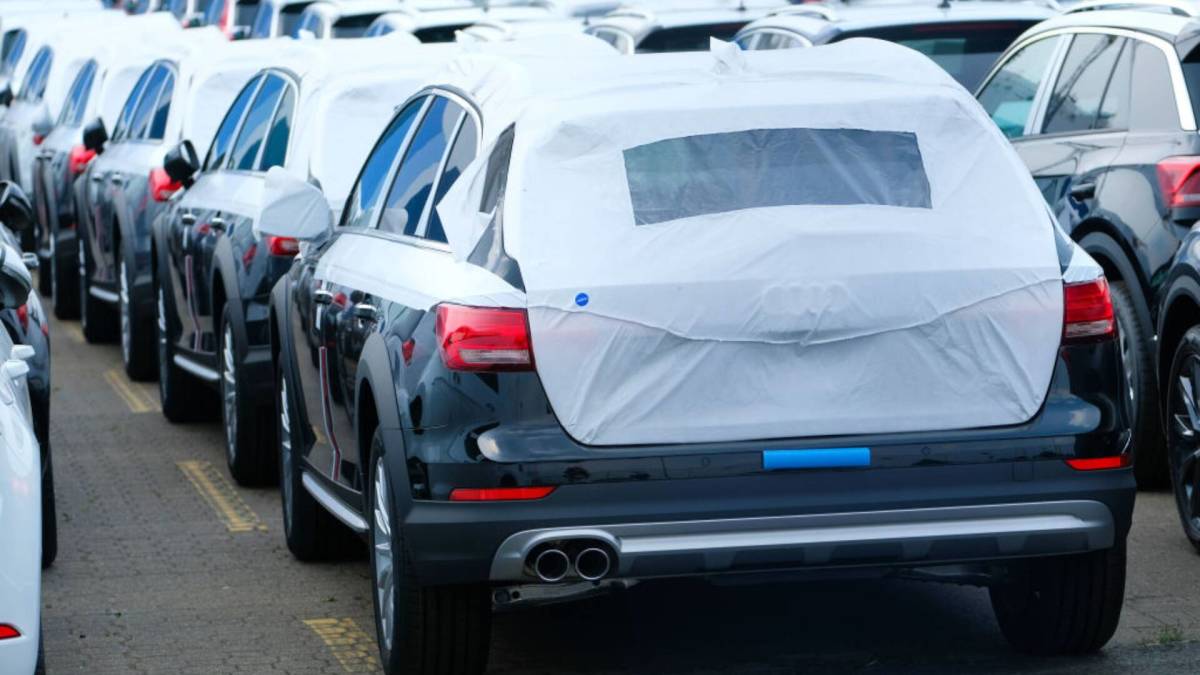Is it possible for both sides to lose a trade war?
The question is worth asking on Monday after President Donald Trump announced that the U.S. has reached a trade deal with the European Union.
The good news is that after six months of uncertainty, car manufacturers in Europe know exactly how much they will have to pay for the foreseeable future, though the mercurial leader of the U.S. could also change the terms of the agreement at any time.
💵💰 Don't miss the move: Subscribe to TheStreet's free daily newsletter 💵💰
Also, the 15% tariff rate is a significant decline from the 27.5% auto and auto parts tariff German automakers have been paying for months.
But on the flip side, the 15% tariff is six times the historical rate our once close economic ally used to pay.
Related: Another automaker is forced to shift strategy due to tariffs
“Even a 15% tariff rate will have immense negative effects on export-oriented German industry,” said Wolfgang Niedermark, a member of Germany's BDI federation industrial group, according to The Guardian.
The German Association of the Automotive Industry says that while the deal is a positive development (President Trump had threatened 30% tariffs), the 15% tax is still a burden.
“One thing is also clear: the U.S. tariff of 15%, including for automotive products, will cost the German automotive industry billions annually and will burden them,” VDA President Hildegard Müller said.
On Monday, German automaker Audi, Volkswagen's (VLKAY) luxury arm, detailed the tariffs' costs so far and addressed what it will look like post-tariff deal.
Audi lost billions to tariffs, and it could lose billions more
On Monday, Audi lowered its full-year guidance after reporting that it lost $1.5 billion due to tariff expenses in the first half of the year.
Now, the company expects full-year revenue between 65 billion euros and 70 billion euros ($76 billion and $82 billion) with gross margins between 5% and 7%, compared to its previous margin range of 7% and 9%.
Despite reporting a 6% decline in first-half sales, Audi reported revenue of 32.6 billion euros ($37.9 billion), a 5.3% year-over-year increase.
“The situation continues to be very challenging. In addition to intense competitive pressure, the drastically increased U.S. import tariffs and expenses for Audi restructuring measures have impacted financial performance in the first half of the year,” said Audi CFO Jürgen Rittersberger.
Related: Elon Musk has a simple solution for Tesla's problems in Europe
Audi delivered just 99,000 vehicles in North America in the first half (excluding Mexico), a 9% year-over-year decline “due to the challenging economic conditions and the delayed impact of the current model initiative in this sales region,” the company said.
Overall, Audi reported deliveries of 783,531 in the first half, down from 832,957 a year ago.
U.S. auto manufacturers are also losing big from latest EU trade deal
While the tariffs have been nothing but a pain for European manufacturers, U.S. builders were supposed to get a leg up.
CEOs from all three U.S. Big 3 autos (Ford, GM, Stellantis) praised the tariffs for “evening the playing field,” as GM CEO Mary Barra put it.
But now that those duties are being lowered, so are the protections U.S. carmakers have been clamoring for.
In May, as it appeared that the U.S. was nearing a trade deal with the UK that would drop their tariffs, the American Automotive Policy Council raised concerns.
“The U.S. automotive industry is highly integrated with Canada and Mexico; the same is not true for the U.S. and the UK. We are disappointed that the administration prioritized the UK ahead of our North American partners,” AAPC President Matt Blunt said.
“Under this deal, it will now be cheaper to import a UK vehicle with very little U.S. content than a USMCA-compliant vehicle from Mexico or Canada that is half American parts. This hurts American automakers, suppliers, and auto workers.”
The Big 3 now has a similar problem with EU competitors, as their 15% duties pale in comparison to the 25% duties U.S. manufacturers have to pay to get their cars from their Canadian and Mexican plants.
Related: Latest tariff deals leave US automakers in a tough position













